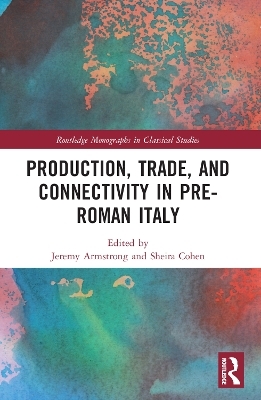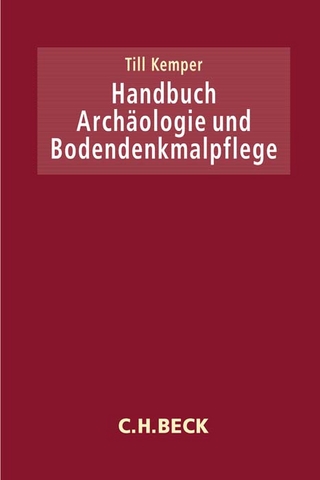
Production, Trade, and Connectivity in Pre-Roman Italy
Routledge (Verlag)
978-0-367-63172-7 (ISBN)
This book explores the complex relationship between production, trade, and connectivity in pre-Roman Italy, confronting established ideas about the connections between people, objects, and ideas, and highlighting how social change and community formation are rooted in individual interactions.
The volume engages with, and builds upon, recent paradigm shifts in the archaeology and history of the ancient Mediterranean which have centred the social and economic processes that produce communities. It utilises a series of case studies, encompassing the production, trade, and movement of objects and people, to explore new models for how production is organised and the recursive relationship which exists between the cultural and economic spheres of human society. The contributions address issues of agency and production at multiple scales of analysis, from larger theoretical discussions of trade and identity across different regions to context-specific explorations of production techniques and the distribution of material culture across the Italian peninsula.
Production, Trade, and Connectivity in Pre-Roman Italy is intended for students and scholars interested in the archaeology and history of pre-Roman and early Republican Italy, but especially production, trade, community formation, and identity. Those interested in issues of cultural interaction and material change in the ancient Mediterranean world will find useful comparative examples and methodological approaches throughout.
Jeremy Armstrong is Associate Professor of Classics & Ancient History at the University of Auckland, NZ. Sheira Cohen is a PhD candidate in the Interdepartmental Program in Classical Art and Archaeology (IPCAA) at the University of Michigan-Ann Arbor, USA.
1. Communities and connectivities in pre-Roman Italy; Sheira
Cohen and Jeremy Armstrong; 2. Enchanted trade: technicians
and the city; Christopher Smith; 3. Metallurgy and connectivity
in northern Etruria; Seth Bernard; 4. Hephaestus’ workshop:
craftspeople, elites, and bronze armour in pre-Roman Italy;
Jeremy Armstrong; 5. Potters and mobility in southern Italy
(500–300 BCE); E.G.D. (Ted) Robinson; 6. ‘The potter is by nature
a social animal’: A producer-centred approach to
regionalisation in the South Italian matt-painted tradition;
Leah Bernardo-Ciddio; 7. Bronzesmiths and the construction
of material identity in central Italy, (1000–700 BCE); Cristiano
Iaia; 8. The ‘Bradano District’ revisited: tombs, trade, and
identity in interior Peucetia; Bice Peruzzi; 9. Etruscan trading
spaces and the tools for regulating Etruscan markets; Hilary
Becker; 10. A mobile model of cultural transfer in pre-Roman
southern Italy; Christian Heitz; 11. Mechanisms of community
formation in pre-Roman Italy: a latticework of connectivity
and interaction; Sheira Cohen; Epilogue: writing of
connectivity at a time of isolation; Elena Isayev.
| Erscheinungsdatum | 11.09.2024 |
|---|---|
| Reihe/Serie | Routledge Monographs in Classical Studies |
| Zusatzinfo | 8 Tables, black and white; 52 Halftones, black and white; 52 Illustrations, black and white |
| Verlagsort | London |
| Sprache | englisch |
| Maße | 156 x 234 mm |
| Gewicht | 612 g |
| Themenwelt | Geisteswissenschaften ► Archäologie |
| ISBN-10 | 0-367-63172-5 / 0367631725 |
| ISBN-13 | 978-0-367-63172-7 / 9780367631727 |
| Zustand | Neuware |
| Informationen gemäß Produktsicherheitsverordnung (GPSR) | |
| Haben Sie eine Frage zum Produkt? |
aus dem Bereich


